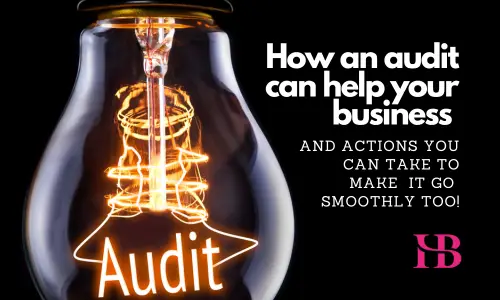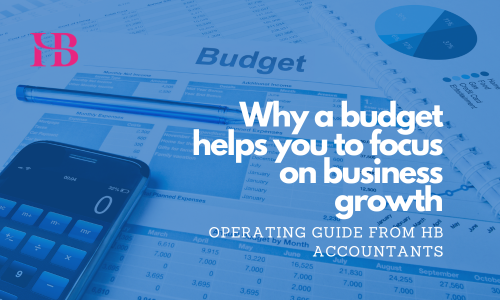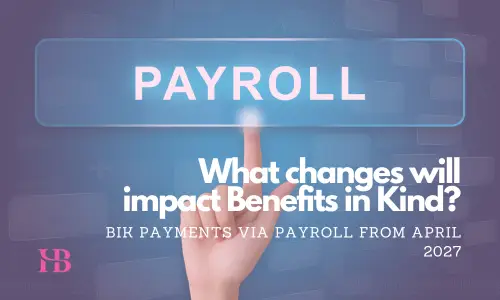Please remember to email over your in-date, Government-issued photo ID. Where this doesn’t include your home address, please provide two proofs of address (utility bill, bank statement etc.)
Many thanks in helping us with our Institute’s compliance requirements
Understanding Why We Need updated ID and Frequent Engagement
In the world of accounting, having a robust Anti-Money Laundering (AML) compliance system is crucial. You may not link accounting to AML checks, but accountants play a crucial role in safeguarding the UK’s financial system

Legal and Ethical AML Obligations
As Chartered Accountants, we need strict policies and procedures to make sure we do customer due diligence (CDD) for every client. This is a rule we must follow and the CDD process supports other regulated anti-money laundering (AML) activity
Karen Chase, HB Accountant’s director says “money laundering facilitates severe crimes like modern slavery, drug trafficking, fraud, bribery, corruption, and terrorism . Accountants have an ethical and legal AML obligation. Identifying suspicious activity and submitting suspicious activity reports (SARs), plays a significant role”
Whole-Firm Risk Assessments, Controls and Training
Accountants need to understand the updated 2017 money laundering regulations. One new requirement is that every firm must carry out and document a ‘whole-firm’ risk assessment and must have systems and controls in place, including training, capable of:
- assessing risk
- performing client due diligence
- monitoring existing clients
- keeping appropriate records
- reporting suspicious activities both internally (to a nominated officer) and externally (by the nominated officer to the National Crime Agency).
CDD is a non-negotiable and is a safeguard against compliance risks. Checklists can be adapted for each client depending on your company’s service offerings and the specific needs of your client.
Accountants need to know the parties involved and have to ask questions
- What businesses are they currently involved with?
- Have you gained professional clearance from their previous accountant?
- Where are they generating their income?
- Have you looked into the prospective client’s previous year-end accounts submissions?
- What public information is available about the client?
CDD doesn’t stop at onboarding a new client
If you decide to take on the client, due diligence must continue. Encourage clients to maintain open lines of communication, especially when making significant financial decisions. This proactive approach will aid identifying any associated risks.
Record Keeping for Accountants
Records must be kept for a minimum of six years from the end of the last financial year they relate to.
If You Have Any More Questions Why Not Head To Our FAQ’s
Click Here For Our Frequently Asked Questions
If you want to discuss your accounting requirements do get in touch. Not only can we help with your questions, we can offer you support with your tax, management accounting and so much more. You can contact us on 01992 444466. We’re accountants for businesses and for people. We’re here to help.
The information contained above is for general guidance purposes only. Whilst every effort has been made to ensure the contents are accurate, please note that each individual has different circumstances and it is essential that you seek appropriate professional advice before you act on any of the information contained herein. HB Accountants can accept no liability for any errors
Read our latest blogs below
- HMRC Advisory Fuel Rates (AFRs) from 1st June 2025
 HMRC has published the latest Advisory Fuel Rates (AFRs) which apply from 1 June 2025. AFRs are the official rates used when reimbursing employees for business mileage in company cars. They’re reviewed every quarter (February, May, August and November) and adjusted in line with fuel prices.
HMRC has published the latest Advisory Fuel Rates (AFRs) which apply from 1 June 2025. AFRs are the official rates used when reimbursing employees for business mileage in company cars. They’re reviewed every quarter (February, May, August and November) and adjusted in line with fuel prices. - How an audit can help your business (and actions you can take to make it go smoothly too!)
 An audit may be a legal requirement for your business but a well managed audit can also boost your business growth and ensure that it is operating in the best way possible.
An audit may be a legal requirement for your business but a well managed audit can also boost your business growth and ensure that it is operating in the best way possible. - Why a budget helps you to focus on business growth
 Are you looking for clarity over the future direction of your business? Do you want to know the actions you should take in order to grow your business? Then consider taking time to create a budget for your business.
Are you looking for clarity over the future direction of your business? Do you want to know the actions you should take in order to grow your business? Then consider taking time to create a budget for your business. - How a SME Owner Can Create More Time
 SME owners and managers – are you part of the one in five small and medium-size enterprise managers that work on average an additional 3 hours a day on a regular basis? Or one of the 33% that claim that there just aren’t enough minutes in a day to get everything completed? (The Independent study … Continue reading
SME owners and managers – are you part of the one in five small and medium-size enterprise managers that work on average an additional 3 hours a day on a regular basis? Or one of the 33% that claim that there just aren’t enough minutes in a day to get everything completed? (The Independent study … Continue reading - A New Academic Year for our Student in Zambia
 As the new academic year unfolds in Zambia, we are delighted to share an update about our sponsored student, Getrude. Currently in her second year at Chalimbana University, Gertrude is studying Business Administration in Accounting and Finance.
As the new academic year unfolds in Zambia, we are delighted to share an update about our sponsored student, Getrude. Currently in her second year at Chalimbana University, Gertrude is studying Business Administration in Accounting and Finance. - Benefits in Kind via the Payroll
 From April 2027, Benefits in Kind (BIK) payments will need to be paid and recorded via payroll each month. Businesses need to prepare for this change.
From April 2027, Benefits in Kind (BIK) payments will need to be paid and recorded via payroll each month. Businesses need to prepare for this change.

